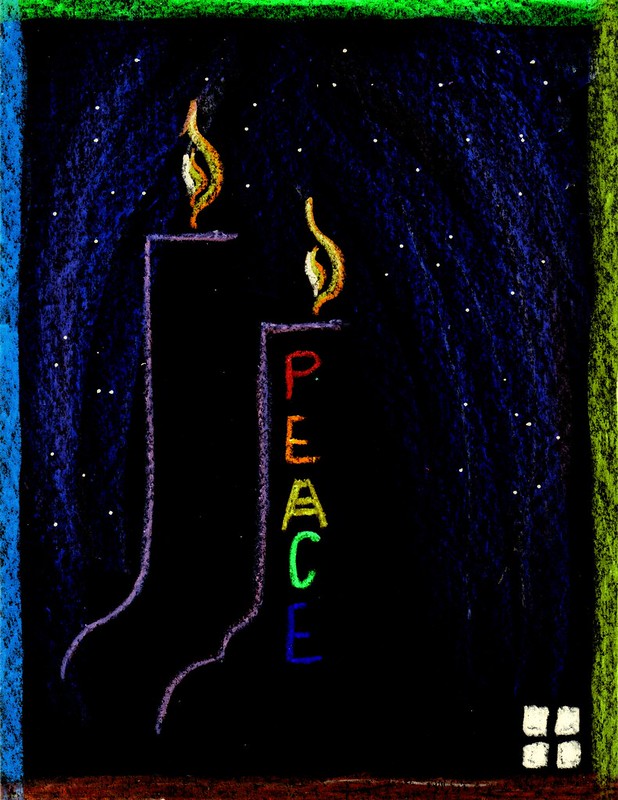What a week. Every day another story of violence around the globe and close to home. And Sunday’s coming. How to respond in worship when we are feeling gutted, threatened, horrified, ravaged by the world, pushed beyond any rational response in measured tones? Remember our “rage belongs before God–not in the reflectively managed and manicured form of a confession, but as a pre-reflective outburst from the depths of the soul. This is no mere cathartic discharge of pent up aggression before the Almighty who ought to care. Much more significantly, by placing unattended rage before God we place both our unjust enemy and our own vengeful self face to face with a God who loves and does justice.” – Miroslav Volf. Click above for more from W. David O. Taylor’s blog, including a Prayer of Penitence excerpted from a Liturgy of Reconciliation and Restoration, produced by the Church of England.
It’s a lovely prayer, but much further down the spectrum toward a “reflectively managed and manicured… confession” than most people will walk in ready for. In fact, I think many of us are disoriented and overwhelmed. The world persists in being worse than we were prepared for. We need an opportunity to place that “unattended rage [despair, fear, etc.]before God.” Even if it’s something as simple as giving people a few quiet minutes of access to pen and paper to pour out their guts. What phrases keep running through your head? What images? What do you want to yell from the rafters? What do you want to spray paint on a wall? What do you need God to hear? What are you afraid God will know you are thinking? Get it down. Get it out. Have it out. Tack it face-down to a temporary wailing wall. This bit is between you and God. No one else will look at these, so don’t censor yourself. We can know that those pages will be all over the map and still bring them together before God to transition into corporate lament.
And what might that kind of corporate lament sound like this week? Click below for a powerful example which ends “We need new songs whispered into our ears, new rhythms to pound in our chests, so that we may join in the chorus of new life. God of love–you open our eyes to the suffering all around us. AND WE WILL SEE God of justice–you open our ears to those who cry out in pain. AND WE WILL HEAR God of healing–you open our hearts to expose our own pain and the pain of the world. AND WE WILL BEAR IT TOGETHER” – Ian Simkins.
After the lament we are prepared to recognize and repent of our own parts in the disorder of the world with that reflective prayer of confession. Let the music reflect this progression as well. Dwell on the stages of lament and avoid the temptation to rush to that “but it’s all good with Jesus” tune you like to end on. We can end declaring we have a hope and a future, but this service isn’t about cheering ourselves up.
Also this week, the sending is key. We cannot simply leave comforted or emotionally spent and numbed, content with our own individual consolation or private commitments to choose love over hate in the abstract, having made our peace with the world as it is. We hope to leave renewed, more sensitive than ever, with resolve, and charged to do the work of making peace with one another. In the words of Erin Wathen, “When hate gets this loud and violent, we are called beyond love. We are called to active compassion; prophetic speech; deep listening; transformative engagement”

